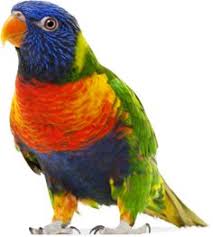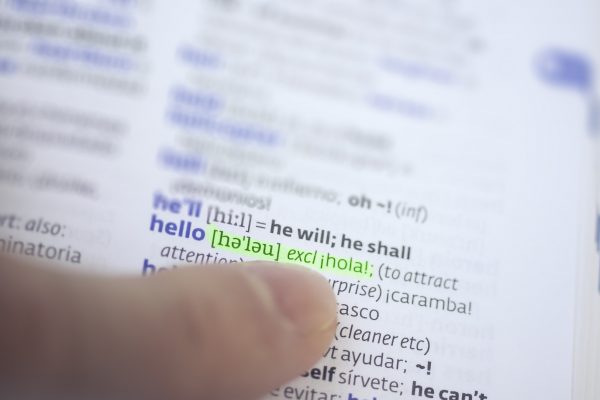Miles Clifford, in his book, A Nigerian Chiefdom: Notes on the Igala Tribe in Nigeria and their “Divine King,” juxtaposes “the Idah chiefdom…and the Jukun chiefdom of Wukari,” This is not surprising, considering the long cultural association that the two groups had shared in Medieval times of Apa or Kwararafa confederacy. C.K. Meek, in A Sudanese Kingdom: An Ethnological Study of the Jukun-speaking Peoples of Nigeria, remarks that “According to early British explorers of the Niger, the Attah of Idah was regarded as a god by his people.” They Igala believe in the concept of divine kingship, which, according to Meek, dates back to the period before 3000 B.C., when “the ancient Sumerian city kings claimed that they were begotten by the gods and were regarded by their peoples as divinely-sent redeemers and vicars of the gods.”
Professor Catherine Acholonu, in her book, Eden in Sumer on the Niger: Origins of Arians of Eriland, Hebrews, Moors and Vedic-Indians (2012), explains the Igala connection with “the ancient Sumerian kings of the ancient city of Agade – founded by Sargon, who bore the title of Atta.” The word, Atta (or Ata) was the name of Iduu Eri’s second son, Atta Eri. She stated further that “Atta” was the “founder of today’s Igala Kingdom and the title of its ruling family, Atta Igala.” My book, An Igala-English Lexicon (2014) pp. 565 – 566 provides an insight into the similarities shared by the ancient Sumerians, the Igala and other Kwa-speaking ethnic groups in West Africa. Meek states that “the ceremonies performed at installation of a Jukun king are a reflection of the belief that, by going into seclusion and performing given rites, the king-elect is “converted into a deity.” The Igala and the Jukun are unanimous in their common belief in divine kingship. This belief compels the Ata to restrain himself from performing human actions – like laughing, yawning, eating, drinking, dancing and so on – in public.
This ancient kingship tradition has survived unbroken existence into the twenty-first century, as it was re-enacted on 8th and 9th November, , 2021, when the coronation rites of Prince Matthew Àlájì Ọ̀pàlúwa Ògwùchẹ́, a descendant of Ata Ògwùchẹ́-Akpá (1911 – 1919), began. His selection by the Kogi State Government had occurred in the last days of the previous month. At Ugwolawo, he was conferred with the preliminary Áídoko-ànyà title, with the title salutation of “Tóódóò!”
At the occasion, Chief Íkábī, from the Office of the Achadu (Chief Minister), had presented the King-designate a tall, red, royal head-dress called ‘Òlùmada,’ a symbol of his authority as Áídoko-ànyà; and he donned it to a deafening ovation. That night, the Ata-elect lived inside a makeshift, thatched hut, which was burned down at sun-up the next day. Before setting it ablaze, the Ikabi had asked him to “Remove your loads from this house. You cannot have two homes. Your home is now at Idah.” Then, the long trek from Ùgwọlawó to Ígálá-ọgbá, Ídá, began.
These twin acts symbolize the Ata-elect’s radical departure from a normal, worldly life and the inception of a new era of mutating into a deity that had been “charged with sacred dynamism,” as Miles Clifford puts it. At Ígálá-ọgbá, he spends nine days in seclusion at the Achadu’s Palace, where undergoes other rites, including the piercing of his ear-lobes, preparing him for the wearing of ear-rings upon his installation. This is in commemoration of his female ancestor, Ébúlẹẹ́jonú who had married an Achadu, Àgà Òkpolúwàlí in the medieval times. This explains why the Achadu is referred to as “Ọ́kọ Àtá,” (the Ata’s husband).
Prince Matthew Àlájí Ọ̀pàlúwa-Ògwùchẹ́ is ascending the throne of that his grandfather, Ata Ògwùchẹ́ Akpa, vacated over a century ago. A humble and calculative personality, the Ata-elect strikes me as a potential asset for the Igala nation, a rallying-point and bridge-builder, as he has repeatedly affirmed that “Igala-land will make progress.” (Ánẹ́-Igálá ānyọ̄gbā). It is hoped that he would bring the Igalas together to usher in an paradigm shift that would spell a focused intra-Igala reconciliation, unity, peace, prosperity, safety and security. A man devoid of divisive prejudices and fixations, he seems to have broken the jinx of individualism that has chained a regular Igala to one spot, as according to them, “everyone sees the moon from his own compound.” The Ata His youthful stint as a Head-boy in St. Peter’s College, Ida, many years back must have given him a head-start in administration, not bothered by what part of Igalaland an Igala person comes from. This he has shown with his choice of the Chairman, Steering/Organising Committee on Ata-elect’s Coronation, Chief Sylvester Mọ́mọ̀ Ọnọ́jà, from Imane, located at the opposite fringe of the Igala landscape.
Later this week, all roads will lead to Ídá, as the Ata-elect is likely to round off his rites before the week runs out. He will proceed to Ọ́jáina – from the Achadu’s Palace, to be received by Ádọkpúlú Agánápojè – the Keeper of Royal Tombs. Here, he performs the second-burial rites of his ancestors and predecessors; and he drops a stone on a spot where he will be buried when his time is up. The Ádọkpúlú and his subordinate chiefs hold a session of edification “Ìtà-òfé-igbéli-ekpa,” with the Ata-elect and they advise him on the roles, responsibilities and taboos of his high office. Then, the Ádọkpúlú wears for him a single wrist-bead (Ọ̀ká); and he leaves for Òfúkolo, where he will be ritually re-born by Ónédè, his ceremonial ‘mother.’ Here, he is publicly pronounced the ‘Àtá-Igáláà’ and he enters the ‘Únyí-ábò,’ (Royal Dressing-room) where he is bedecked in layers of royal regalia, including the remaining wrist-beads and a royal necklace (Ọ́kwu). Riding in a majestic procession, he proceeds to the ‘Ẹ́rẹ́-anẹ̀’ to pay homage to the spirits of Igala ancestors and moves to Ọ̀pùàtá, the ancient home of the early Atas. From there, he heads to the Palace, Òlógbó-Àtá or Éfú-ọfẹ where he addresses everyone present. Thereafter, he declares a feast for all, as awe-inspiring royal masquerades, “incarnate beings,” come out in numbers, to grace the occasion.









